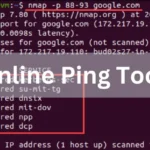The Ultimate Bank to IFSC Code Tool Guide: Efficiently Search and Verify Your IFSC Code
When conducting online bank transactions in India, such as NEFT, RTGS, or IMPS, you’ll frequently be required to enter a bank’s IFSC code. This alphanumeric code ensures that your payment reaches the correct bank branch without any errors. The Bank To IFSC code tool is an indispensable resource that allows you to quickly search and verify IFSC codes for seamless money transfers.
This comprehensive guide will cover everything you need to know about IFSC codes, how to effectively use an IFSC code tool, and the importance of accuracy in completing transactions. Whether you’re a seasoned user or a beginner, this article will equip you with all the essential information about IFSC code lookup tools and best practices for a smooth banking experience.
Contents
What is an IFSC Code and Why is it Crucial for Bank Transactions?
The IFSC code (Indian Financial System Code) is an 11-character alphanumeric code used to identify specific bank branches during electronic transactions like NEFT, IMPS, and RTGS. The first four characters of the code represent the bank code, the fifth character is always zero, and the last six digits correspond to the unique branch identifier.
For example, SBIN0001234 represents the State Bank of India branch located in Mumbai. Accurate entry of this code is critical for ensuring that funds are transferred to the correct destination. IFSC codes play a vital role in directing electronic payments, thus minimizing errors and improving the efficiency of digital banking systems.
How to Use the Bank to IFSC Code Tool Effectively
To find an IFSC code, the easiest method is to use a reliable Free Bank to IFSC Code tool. These tools allow users to search by bank name, branch name, or location to get the correct IFSC code. Here’s how to use them effectively:
Steps for Using an IFSC Code Finder Tool:
- Visit a trusted website offering an IFSC code lookup tool.
- Enter the required information—either the bank name, branch name, or location.
- Click search, and the tool will display the relevant IFSC code along with additional details like the branch address and contact number.
These tools are essential for anyone who needs to initiate bank transfers, as they simplify the process of finding the correct IFSC code.
The Difference Between IFSC Codes and MICR Codes
While both IFSC codes and MICR codes are vital for the banking system, they serve distinct purposes. The IFSC code is used for online banking transactions, while the MICR code (Magnetic Ink Character Recognition) is used for processing paper-based transactions, such as cheques.
- IFSC Code: Used for online fund transfers via systems like NEFT, IMPS, and RTGS.
- MICR Code: Used to process paper cheques and ensure their authenticity and legitimacy during clearing.
Understanding the difference between these two codes helps ensure that the appropriate one is used for the correct type of transaction.
High-Volume Keywords for Searching IFSC Codes
When you are searching for IFSC codes, it’s essential to use the right keywords to maximize the effectiveness of your search. Some popular keywords for IFSC code searches include:
- IFSC code lookup
- Find IFSC code
- IFSC code for NEFT transactions
- Bank branch IFSC code search
By including these keywords in your searches, you’ll be able to quickly find accurate and reliable results for your banking needs.
Importance of Using the Correct IFSC Code in Transactions
Using the correct IFSC code is essential for ensuring smooth and error-free bank transactions. A wrong IFSC code can result in the transfer being delayed or sent to the wrong branch. Always verify the IFSC code before proceeding with any online bank transaction to avoid complications.
Conclusion
In conclusion, understanding and using the correct IFSC code is critical for making secure, accurate NEFT, RTGS, and IMPS transactions. Whether you are a frequent user of online banking or new to the system, utilizing an IFSC code lookup tool is the most efficient way to find the IFSC code you need.
Always double-check the IFSC code for accuracy using reliable online tools like Paisabytes or CodeForBanks, and ensure that your bank transactions are processed without delay. By following the steps outlined in this guide, you can streamline your online banking experience and avoid any transaction issues.
FAQs
How Can I Find an IFSC Code Without an Account?
Even if you don’t have a bank account, you can still search for an IFSC code through online tools. Websites like MiniSEOTools, and the bank’s official portal offer search functionalities where you can find the IFSC code for any branch.
How Do I Ensure the IFSC Code I’m Using is Correct?
To verify the accuracy of an IFSC code, always check it against official resources. You can use trusted online IFSC code tools, or visit the official website of the Reserve Bank of India (RBI) for a list of valid codes. Double-checking helps prevent transaction errors.



















